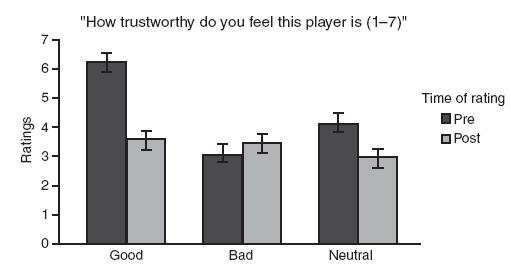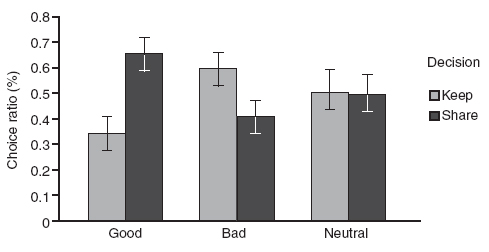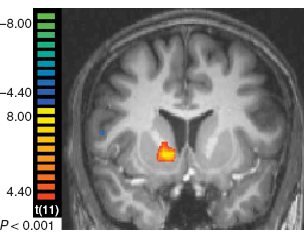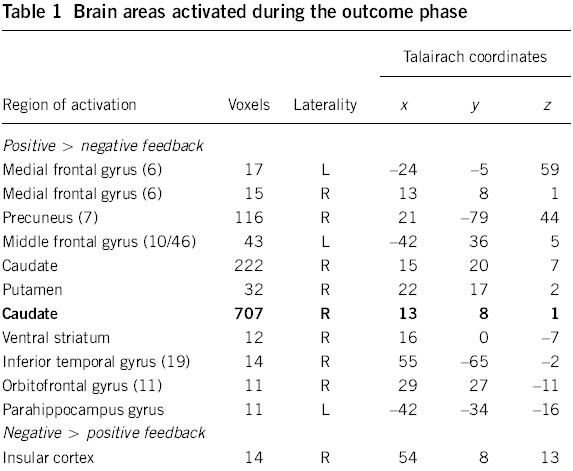Archive
The Adventures of Dr. Doubleface- OCD

About a fortnight ago I was called on an urgent visit to Wellington. As a therapist, I rarely receive calls from my patients during my off-duty hours. I make it clear, as it is required by my profession, that during my personal time I should be reached only in cases of emergency. This helps me establish a clear line between Rogerian compassion and Freudian aloofness. In the past, I often found that I was too deeply involved with the lives of my patients, and the “friendly” visits, which at times seemed perennial, have alienated me from my family. Therefore, unscheduled appointments and non-therapy related requests are acceptable only when my clients are in crisis. There is no resentment between me and my patients over this policy because we both come to an agreement right from the start of our first session on how we should deal when we meet each other in public, when the therapy is discontinued, and when they are in need.
I have, by the way, a successful practice and a background in psycho-dynamic theories. Since the early furor that kindled an interest in psychoanalysis has somewhat disappeared, I came to be more accepting of newer, more effective therapeutic methods. My background, however, should be of little interest to you. The story that I am about to relate is all that matters.
The visit that I undertook involved a client that suffered from obsessive compulsive disorder, which is commonly abbreviated to OCD. To a large extent, this disorder comes with many disabling features for those who have it: intrusive thoughts that produce anxiety and repetitive behaviors aimed at lowering anxiety are the two main ones. The individual whom I’ve visited suffered from OCD since early adolescence, and even though he went through a life full of concealment, he realized that no degree of will-power and stubbornness will save him from his obsessions, so at the age of thirty he sought help from me.
My first encounter with him was during a phone conversation. His plea for help had enough oddities in it for me to refuse his request. He offered a remuneration of $350 for a three hour session, under the condition that the sessions be held in the ambiance of his own house. Out of curiosity, and because after googling his name I was able to make the assumption that I am not involving myself in some queer affair, I agreed.
I approached his house, which by far did not resemble the generic country house estate. The windowless walls, the impenetrable metal shingles on the roof, the absolute symmetry found in all areas of his garden, and many other things that my mind was too inquisitive to notice hinted that I am dealing with an individual that suffers from OCD and not with some joker.
While I was hopping over a metal gate that would not let itself open under my efforts, a man dressed in a gardener‟s outfit suddenly appeared. I remember the questioning glances from that man, whom I thought was my patient, who apprehensively asked me:
“Are you going in?”
“Hi. Are you Mr. X?”
“No, I am his gardener. He never lets anyone in. He pays me for taking care of his garden and for signing for his daily mail, but even then I have to put the parcels in front of the main door and never enter the house. A very weird guy. But he pays well, so I don’t complain.”
Since I could not tell to a stranger the reason for my visit be-cause by doing so I would have to reveal that Mr. X is suffering from a mental disorder, I decided to partially conceal the truth, “I am a doctor, and I was called two days ago by Mr. X. From his account he is distressed by some migraines and pills are of no help. I came here to examine him.”
“Well, my other job is to not let anyone in. You see, I am also a security guy here. So you’ll have to show me something that proves that you’re a doctor. ”
I gave him my card, but he did not seem satisfied. I was fortunate to have a stethoscope and a book on medicine in my car, which are totally useless objects to me but that made an impression on the poor lad. I brought them to him, and he became less distrustful.
“Ok. I believe you. You can go in.”
As I approached the entrance, a security camera followed my every action. When I was at about two feet from the door, I heard the clanking sound of the locks. I knocked, but no one answered. I finally pushed the handle and made my way in, hoping that it would not be impertinent for me to come inside without a formal invitation. After I closed the door, I saw that the locks were controlled by a remote. In less than ten seconds I was also able to see the host.
“Hello, Dr. Doubleface. I hope that you had no trouble with my gardener. He might be simple-minded, but because I saved him from penury he is forever grateful and is able to be as cautious about my lifestyle as possible.”
“Hello, Mr. X. I certainly did not expect to enter a house with no windows. Your gardener was kind enough to let me enter, although I am not sure that he is as secretive as you think.”
“Oh, he probably mentioned that I am weird? But I am alright with his assumptions, even if he voices them. Poor, uneducated people rarely spread rumors that have any factual evidence in them. And, since it is common for them to say that scientists who are dedicated to their work are weird, no one really cares about such rumors.”
“What about your house? It can tell a lot about those who are living in it.”
“We live in an age full of eccentricities, so the design of my dwelling should surprise very few people. The reason you think my house is unordinary is because you have preconceived assumptions about me. If this were the abode of a wealthy, nuclear family, you might conclude that they have chic tastes. But since you know that someone suffering from OCD is living in it, you believe that its design betrays a lot about me.”
“You are right. I did make hasty conclusions. I was actually baffled by the fact that you shook my hand when we exchanged greetings and that the insides of your home look quite ordinary.”
“By ordinary you mean messy?”
“Yes.”
“Dr. Doubleface, there is more than one devil in hell. As you know, there are various types of obsessions and compulsions, and I am not bothered by those related to excessive hygiene. Come after me in the lab, and I will tell you who I am and what my work involves. Then we will discuss our treatment procedures.”
I followed him in his lab, and for about a half an hour we discussed matters related to his medical history. I need to mention that I have never met a more educated person before. He received a fair share of success in his life as a biochemist—a work-from-home biochemist. He made his pleasant escapes from obsessions in his home lab, to which a parcel with tissues to study was sent daily. I cannot offer you much detail here because I am somewhat re-strained and obliged to protect the privacy of my patients. Besides the fine points regarding his problems with anxiety and the tragedy which occurred during our interview, I shall delve very little on who he is and what he does.
“Dr. Doubleface, your initial assumptions about my house were correct. It has been three years since I have not left this place. I do not suffer from social phobia or agoraphobia. I could say that I am actually very comfortable around people. I get my food and other supplies through my gardener, to whom I order strictly to buy only the goods I list to him. But I do have OCD, and a very severe one.”
“Could you tell me more, then, about the nature of your obsessions?”
“Hmm…In your medical training you have probably never met a more bizarre problem than mine.”
“It’s alright. It doesn‟t hurt to tell me.”
“I obsess about weather. I have to elaborate so that you will understand me better. For my whole life I lived in the temperate region, and I got accustomed to four seasons: winter, spring, summer, and autumn. The problem is the real weather does not fit our perception of the season we are in. For example, we are now at the end of March, but the weather outside is cold enough to say that it is February. If I were to go out and experience the dank climate, I would go into a panic attack. I went outside several times, and every time I thought I was this close to being dead. As you see, because of my sedentary lifestyle I am obese, and these panic attacks have quite a toll on my heart. After I get somewhere to safety, a place separated from the outside world, I am able to regain my composure. But then I obsess about the fact that the weather out-side is not what it should be. The only way I am able to overcome those thoughts is through hours and hours of toiling in the lab. Spring has to be spring. Winter needs to remain winter. Don’t you agree?”
After his account I asked him if he had the mischance of experiencing a weather calamity, but his answer was no. Clearly I was dealing not only with OCD but with an irrational fear that had no apparent cause. My intention was to use desensitization in order to overcome his phobia of weather. We agreed about two hours in the session that he should check the weather outside through his gardener and go out only when the weather fits his perception. Then I gave him a prescription for Zoloft, a selective serotonin reuptake inhibitor, which could help him overcome his panic attacks. At the end of our session he offered me a drink, and I kindly accepted a glass of water. He went to get one. While he was gone, I opened my bag and took out a red apple. The laboratory was cluttered with junk food, so I thought there are no restrictions about munching. While I was chewing on my apple and examining the room, I heard behind me the sound caused by glass shattering. I turned around quite startled, and I saw my host pointing his finger to my apple while shaking and shouting “Autumn! Autumn! Autumn!” He was clearly in the early stages of a panic attack. I know that in such cases there is not much that one could do. I asked Mr. X to lie down on a chair and take deep breaths. But ,before he could hear my advice, he fainted. And, his heart stopped beating, too.
I know that indirectly I am the cause of Mr. X‟s death. While I was performing CPR, I realized that apples are deciduous fruits, which under natural circumstances should be growing only in the early start of autumn. I understood that the sight of my apple caused dissonance in his mind, which eventually led to a panic attack. Paramedics got in the house a half an hour after I called them because I had trouble finding the remote used to open the locks. Because of his obesity, troubling obsessions, and panic attacks, I finally came to accept, even though it still seems as ridiculous as ever, that Mr. X died at the sight of an apple.


Why your self-interest attracts cooperation? It might be because your are percieved as a decent person.
Hombre, put a white collar and a spruce tie on. Senorita, fancy up a snappy, classy dress.

Matt Bomer (aka Neal Caffrey in The White Collar Show)
Are you done grooming? Alright. Lets do business now. But first, let me give you my credentials:
I do business with complete honesty, and I will inform you about all the profits you will earn. There will be no ulterior motives from my part: all my cards will be revealed, so you will know exactly what my next move will be. But here is the thing: in this enterprise that I have, if you seek self-interest while I maintain my honesty, you will win more money and I will get less. On the other hand, if we are both honest, then it’s 50/50 for both of us, which means that you will earn less than from being dishonest. However, there is a third scenario. I might not be as honest as I described myself, so you will once in a while get cozened by me. Eventually, you will find out that I am not at all consistent in my cooperation. Will you still decide to cooperate? Let’s find out.
In a little experiment done by Delago, Frank, and Phelps (2005), they tried to find out the implication of the human striatum in the trial-and-error feedback processing and reward learning. Particularly interesting for them was the caudate nucleus (CN), a structure in the brain that has been linked with memory and processing affective feedback. They hypothesized that the activity in the CN increases during the initial learning process and could diminish overtime once you learn to interpret the cues from your environment correctly. Hence, CN is presumed to be an important component in guiding future actions.
In order to examine the activity of CN in people who have to make economic choices in social contexts, Delago et al. used a trust game, similar to the business deal I offered you earlier:
In their two-person trust game, 12 participants played with three fictional characters. In the game, participants could either keep the $1 dollar they earn from each trial or give it to their partner, who would actually get $3 instead of $1, and who would then have to make the decision to share the money or not (Fig 1). Additionally, they were presented with lottery trials, in which participants decided whether they wanted to play or not in order to win $1.50 Before the game, however, they were given specific descriptions about each fictional partner. To precis: they were instructed that one fictional partner will be good (“an English graduate student and volunteer inner-city teacher who rescued a friend from a fire during a crowded concert”), and the other two will be bad (“a business graduate student who had been arrested for trying to sell tiles of the space shuttle Columbia on an Internet auction site”) and neutral. Also, subjects were told that their partners’ responses might not always be consistent with the description given at the start of the session. Hence, a good partner might decide to keep the money instead of cooperating. Actually, during the experimental session, each partner had a 50% reinforcement rate, so there was no difference the behavior of the fictional partners.

Figure 1: a trial game was divided into a decision phase and outcome phase and could be played with three possible partners (good, bad, and neutral).
Subjects also were asked to give pre- and post- experimental trust ratings (Fig. 2) for each fictional partner, which were later compared with their overall behavioral choices and neuroimaging results.
Behavioral results:
Delago et. al found that the descriptions did change the initial perceptions of the fictional partners’ trustworthiness that the subjects made, but those perceptions withered by the end of the experimental session, mainly because subjects learned that partners were not always consistent in their response patterns. Here are the pre- and post- experimental trust ratings:
Participants were generally more likely to share with the good fictional partner than with the bad or neutral partners (Fig. 3), despite the decrease in trust in the good partner. This shows an unexpressed dissonance between the participants’ perception and their behavior. If they notice that between the good, the bad, and the neutral fictional partners there is no difference in the chosen outcomes, then why do they still make more decision to share with the good partner than with the bad?
Since participants made more decisions to share with the good partners, it is safe to presume that they were affected by the partners’ descriptions of their morality. But what is happening in their brains?
Neuroimaging results:
Functional magnetic resonance imaging (fMRI) data was collected separately for the outcome and decision phases. As it was predicted, for the outcome phase there was a significant increase in activation in the ventral caudate nucleus, caused by the negative feedback (monetary gain) and positive feedback (monetary loss).
The significant activity in the caudate nucleus suggests that the perceived moral character influences the underlying neural activity involved in processing feedback. However, the same activity of the CN was not observed in the decision phase. During the decision phase, activation was observed mainly in the ventral striatum (VS), which suggests that VS might play a role in making predictions and anticipating outcomes.
a
White Collar Image from here
References
Delago, M. R., Frank, R. H., Phelps, E. A. (2005). Perceptions of moral character modulate the neural systems of reward during the trust game. Nature Neuroscience, 8(11): 1611-1618. http://psychology.rutgers.edu/neuroscience/publications.html
Suicide Note

Mitchell Heisman
Before I cause any unrest for those who are reading this post, I want you to know that the suicide note is not about me: It is about the person whose disaffected image you see on your left.
Mitchell Heisman died this September by shooting himself in front of a crowd of 20 people on the steps of Memorial Church of Harvard University. Before his unfortunate finale, he wrote a mortis manifesto of 1905 pages, outlining in it his views on philosophy, politics, history, religion, and science.
To some his legacy might seem superfluous ramblings, and they may consider his suicide as nothing more than a juvenile attempt to gain posthumous recognition. To be frank with you, I do not care what reasons or what despair brought him to consider ending his life. Thousands and millions die for the same reasons and through the same means as he did. Showing pittance for every death is beyond my capability. I do, however, commiserate with his family, to whom the shock of his death must be an unendurable suffering.
Let me reiterate something. This post will not be about the Mitchell Heisman. My interest is solely in his work: Suicide Note.
Suicide Note is a powerful manifesto filled with extensive compendiums on a variety of topics. I have by no means read it all, although I am committed to slowly tread my way through it. Nevertheless, from the modicum of peruses that I’ve done so far, I believe that this work is phenomenal. I know that to many his abstruse and highly convoluted way of writing might be inaccessible. There is a reason for that. He, unlike most scholarly writers, did not always build his arguments from scratch. He revealed his thinking readily by cutting down all the necessary introductions. Hence, if you read his views on nihilism, you first have to get acquainted with the works of the major existential philosophers that came before him in order to understand what is he writing about.
Below you will find some excerpts that I found intriguing:
On Nihilism:
Uncertain of uncertainty, skeptical of skepticism, it seems that the most important question is whether there is an important question. The only serious question is whether there is anything to take seriously. What has previously been considered of value or importance appears as only an expression of myth, bias…error. (pg. 22)
There is a very popular opinion that choosing life is inherently superior to choosing death. This belief that life is inherently preferable to death is one of the most widespread superstitions. This bias constitutes one of the most obstinate mythologies of the human species. (pg. 22)
If the rational life leads to the nihilistic life, what are the consequences of a living intelligence whose highest organizing “principle” is this hypothetical nothingness?
What would it mean, in concrete terms, to live a rational life according the insight of the nihilistic? What would be the ultimate consequence of applying the hypothesis of unmeaning to every belief, every thought, every action, every emotion, every purpose, and every goal? To nausea, to fear, to love, to terror? (pg. 34)
On Nurture/Nature Debate:
When the nature/nurture issue is applied to fish or horses, it is generally assumed that nature — by nature —plays a stronger role than nurture in determining their behavior. This implies that human nature — by nature — is less determined by nature. Humans, then, are less determined by nature because humans are superior to nature — by nature. (pg. 130)
(I will have to agree with critics who believe his writing is a tad esoteric. The repetition of nature in several occasions is unnecessary. His ideas are clear, however.)
On Freedom
All political problems can be solved by slapping bumper stickers of “freedom” over them. But what is left when “the individual” stops hiding behind these abstractions of freedom? What if someone were to make the ridiculous blunder of asking: How do we use our freedom? Are there duties or moral imperatives justified along with these freedoms? What is right way to live? Anyone making a pilgrimage to the destination of Anglo-Saxon political philosophy with such questions, asked in their fullness, must realize that he or she has arrived at the wrong place. (pg. 873)
R.I.P.
The Website with his legacy: www.Suicidenote.info



